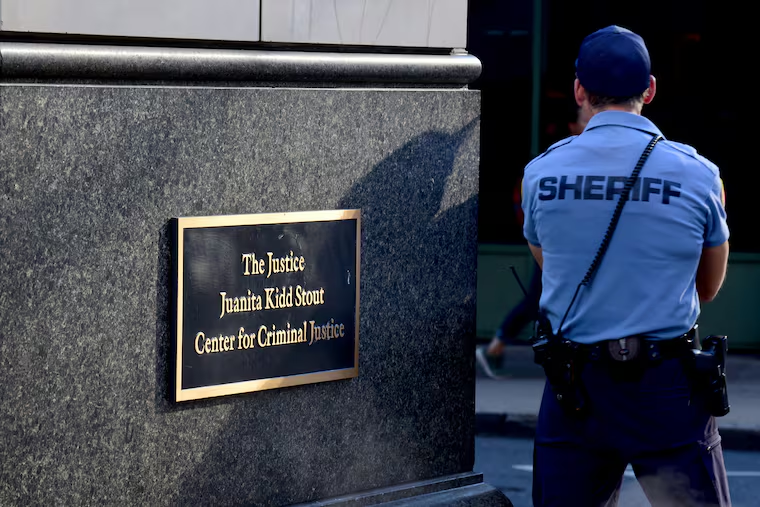Philly rapper Kyzir Reeves, aka HopOutBlick, charged with murder
Police say Reeves was involved in a shooting that left three teens dead and a fourth injured in April.

An 18-year-old rapper has been charged with murder in connection with the shooting that left three teenagers dead and another wounded in Northeast Philadelphia earlier this year, police said.
Kyzir Reeves, known as HopOutBlick, was arrested Thursday and charged with two counts of murder, attempted murder, robbery, illegal gun possession, and related crimes. Reeves had been on the run since at least July, after law enforcement issued a warrant for his arrest.
Police say Reeves was involved in a shooting that left three teens dead and a fourth injured on April 28 on the 5900 block of Palmetto Street in the city’s Crescentville section.
Malik Ballard, 17, Salaah Fleming, 14, and Khalif Frezghi, 17, were killed. A 16-year-old boy was shot in the abdomen and survived.
Tyree Lennon, 23, was also arrested and charged with murder, conspiracy, and related crimes in July.
» READ MORE: Philly rapper Blumberg Geez, wanted for murder, is killed in a shooting
The shooting was the result of a gun trafficking sale and attempted robbery gone wrong, police said in charging documents.
According to the records, a group of young men had organized a meeting at a house in which they planned to buy a gun for $1,000, but Lennon, Reeves, Frezghi and others in the group had set them up to be robbed for the cash.
But the setup went sideways, police said in the records, when members of the purchasing group drew their own guns and shots were fired.
Reeves is fairly well known in Philly’s drill rap circles, with nearly 20,000 Instagram followers and songs that frequently draw tens of thousands of views on YouTube. And he was not particularly laying low while on the lam. He was active on social media, and five days ago he posted a new song, “Double Koffins,” in which he and other young men flash guns at the camera. (He includes a disclaimer that the weapons are props.) Then, he did an interview on YouTube where he talked about his life and music career.
He was arrested three days later.
Reeves is being held without bail at the city’s Curran-Fromhold Correctional Facility. Charging documents did not list a lawyer.
One week after police say Reeves shot the teens in Crescentville, he took to Instagram to try and clear his name.
“I do not have any involvement in drugs or sales of drugs nor partake in any involvement in street crime,” he wrote in a post. “This account is strictly for entertainment purposes only.”
Drill rap is a subgenre of hip-hop that originated in Chicago in the early 2010s. It rose in popularity as artists like Chief Keef topped the charts, and has grown increasingly popular in Philadelphia in recent years.
Drill rappers are known for their explicit lyrics that often chronicle gun violence and life on the streets in some of the city’s most historically under-resourced neighborhoods.
“Drill” itself is another word for a shooting. And Reeves’ rap name is a reference to violence — “blick” is slang for shooting or gun.
Young people often use the songs to document the back-and-forth shootings across the city, sometimes mocking the deaths of rival group members, or even claiming responsibility for a shooting. Philadelphia police have said the music has led to shootings and subsequent retaliation, as rappers taunt their opposition and diss the dead.
Reeves is not the only rapper to be charged with murder this year. Earlier this year, rapper Aysir Clark, aka Lil Bape, was charged with fatally shooting a 16-year-old. And in June, Anthony Watson, aka Blumberg Geez, was shot and killed while on the run for a homicide.
Because of the violence, drill has become a controversial subgenre — last year, New York City Mayor Eric Adams called for it to be banned after two Brooklyn drill artists were killed. At a recent panel at Harvard University, activists and scholars debated whether the music was glorifying and perpetuating violence, or an outlet for young Black men to document their reality and struggles escaping the cycle of gun violence.